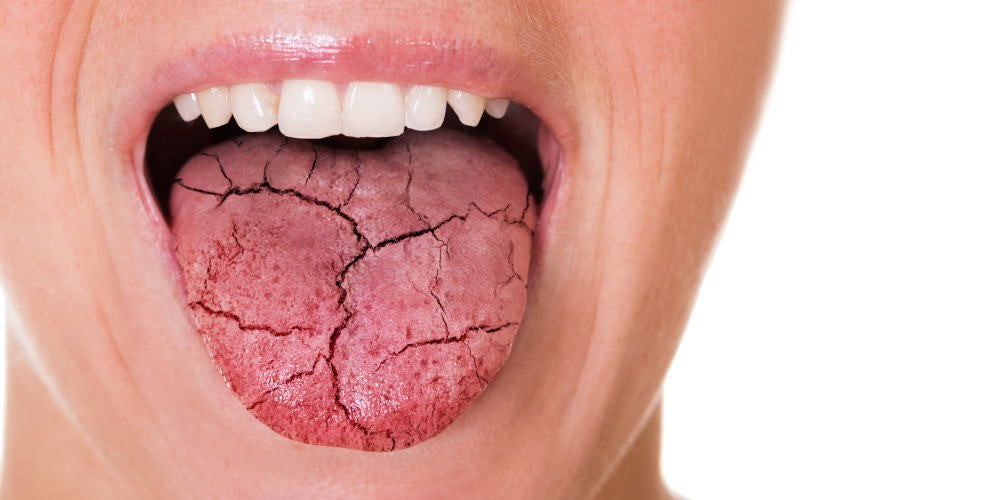Yes, anxiety can cause a dry mouth. This condition is also known as xerostomia.
Experiencing dry mouth during anxious moments is a common phenomenon that many individuals face. Anxiety triggers the body's stress response, which can result in a variety of physical reactions including dry mouth. This is because anxiety can lead to increased breathing through the mouth, reduced saliva production, and changes in the body's ability to maintain moisture levels.
Understanding the link between anxiety and dry mouth is important for managing both the psychological and physical aspects of stress. Simple remedies, like staying hydrated and practicing relaxation techniques, can alleviate symptoms. Seeking professional help is advisable for those who find anxiety and its physical manifestations, like dry mouth, interfere with their daily lives.

Credit: mdperio.com
The Nexus Between Anxiety And Dry Mouth
Imagine feeling your heart racing and hands shaking. Now, add a dry mouth to the mix. Does this sound familiar? Many people with anxiety also experience a dry mouth. Understanding the connection between these two symptoms is essential. It helps in managing anxiety's physical side effects better.
Psychological Stress And Salivary Secretion
Anxiety impacts our whole body, including our saliva production. Stress tells your body to divert resources. It believes there is a more pressing issue than saliva. This can lead to a noticeable decrease in saliva. Thus, a dry mouth is often a companion of anxiety.
- Anxiety affects our nervous system.
- Our nervous system controls saliva.
- Less stress usually means more saliva.
Fight Or Flight: The Body's Reaction To Anxiety
Anxiety triggers a fight or flight response. This response prepares you for danger. Your body picks functions that help in survival. Unfortunately, saliva production isn't one of them. This is why you may have a dry mouth when anxious.
- Heart rate speeds up.
- Breathing gets faster.
- Saliva production slows down.
Remember, a dry mouth can also be due to other reasons. Always consult with a healthcare provider if you're concerned.

Symptoms And Signs: More Than Just Parched Lips
Anxiety doesn't just cause a racing heart and sweaty palms. It can sneak up with a variety of symptoms. Dry mouth, or xerostomia, is one such symptom. It’s more than just feeling thirsty. Your mouth feels sticky and uncomfortable. Let's explore how to spot a dry mouth and understand other signs that anxiety might be affecting your body.
Identifying Dry Mouth

A lack of saliva is the main sign of dry mouth. It makes talking and swallowing tough. Look for these signs:
- Thick, stringy saliva
- Bad breath
- Difficulty chewing, speaking, and swallowing
- A change in taste
- Cracked lips
Other Physical Manifestations Of Anxiety
Anxiety touches more than just the mouth. Your whole body feels its impact. Watch out for these symptoms:
|
Symptom |
Description |
|
Stomach Troubles |
Upset stomach or nausea. |
|
Rapid heartbeat |
Your heart beats fast and hard. |
|
Muscle Tension |
Muscles feel tight or painful. |
|
Sweating |
Hands and body sweat a lot. |
|
Dizziness |
Head feels light or spinning. |
|
Breathing fast |
You breathe quick and shallow. |
Scientific Perspectives: What Research Says
Understanding how anxiety affects the body requires delving into scientific studies and their findings. Researchers continually explore the intricacies of mental health and its physical manifestations. Various studies underscore the relationship between anxiety disorders and decreased saliva production, commonly experienced as dry mouth.
Studies Linking Anxiety Disorders And Dry Mouth
Research establishes a clear link between anxiety and the physical symptom of dry mouth. Consider the following:
- In clinical studies, participants with anxiety disorders frequently report dry mouth symptoms.
- Surveys show higher dry mouth complaints among those with anxiety than those without.
- Longitudinal studies suggest persistent anxiety can lead to chronic dry mouth issues.
Biological Pathways To Decreased Saliva Production
Science explains how anxiety leads to dry mouth through specific biological pathways:
|
Pathway |
Effect on Saliva Production |
|
Autonomic Nervous System |
Stress activates the sympathetic branch, inhibiting saliva flow. |
|
Hormonal Changes |
Cortisol increases can reduce saliva secretion. |
|
Dehydration |
Anxiety-induced sweating and rapid breathing lead to fluid loss. |
Recognition of these pathways encourages focused treatments. Managing anxiety might help alleviate associated dry mouth symptoms.
Managing Anxiety-induced Dry Mouth
Feeling anxious can lead to a dry mouth, a strange but common symptom. This can make daily life quite uncomfortable. But fear not! This post will guide you through ways to manage this unwelcome dryness. From simple lifestyle tweaks to medical solutions, there's a lot you can do to find relief. Let's explore.
Managing Anxiety-induced Dry Mouth
We'll split our focus into two main parts: lifestyle adjustments and medical treatments.
Lifestyle Changes For Relief
Daily habits can greatly impact dry mouth caused by anxiety. Here are effective tips:
- Stay Hydrated: Drink plenty of water throughout the day. A sipper bottle might help!
- Avoid Caffeine: Caffeine can dry out your mouth. Consider less caffeinated alternatives.
- Dry Mouth Spray: ie; Denta-Med Dry Mouth Oral Hygiene Spray
- Breathe Through Your Nose: This helps keep your mouth moist.
- Use a Humidifier: Adding moisture to your home air can prevent your mouth from drying.
- Reduce Stress: Try yoga or meditation to lower anxiety levels.
Medical Interventions And Remedies
If lifestyle changes aren't cutting it, consider these medical options:
- Consult a Doctor: They can provide tailored advice or prescribe medication.
- Dry Mouth Sprays: Over-the-counter sprays can help keep your mouth moist ie: Denta-Med Moisturising Mouth Spray.
- Prescription Medication: Certain medicines can boost saliva production.
- Oral Rinses: Special mouthwashes are designed to manage dry mouth symptoms ie; Denta-Med Moisturising Mouthwash (with all-natural Malic Acid and pH balanced).
Remember to always talk to a healthcare provider before starting any medical treatment.
Stories Of Struggle And Relief
Anxiety affects people in various ways, some visible and some internal. A dry mouth, though less talked about, can be an immediate and distressing symptom of anxiety. This section of our blog explores personal stories of those who have battled with anxiety-driven dry mouth and the methods they found for relief and recovery.
Many struggle silently, their mouths parched, as anxiety takes hold. Their stories shed light on this lesser-known symptom.
- Jane's story: Meetings triggered her anxiety. Her mouth felt like a desert.
- Mike's journey: Public speaking sparked his dry mouth. Sipping water was his temporary fix.
- Ava's challenge: Social events left her with a cottony feeling. Dry Mouth Sprays helped her manage.
These experiences show the diverse impact of anxiety. Sufferers find unique strategies that offer temporary respite.
Yet, there is light at the end of the tunnel. Discover the victories of those who overcame dry mouth caused by anxiety.
- Mark's victory: He mastered his breathing. His dry mouth symptoms decreased over time.
- Emma's triumph: Yoga and meditation restored her balance. She no longer battles dryness.
- Liam's win: Professional help and hydration strategies worked for him. He lives a symptom-free life now.
Success is possible with the right tools and support. These stories inspire hope for relief and recovery.
Preventive Measures And Mindful Practices
Anxiety can often lead to physical symptoms, such as a dry mouth. Understanding how to manage and prevent this uncomfortable condition is essential. Here are some effective strategies to help keep dry mouth at bay.
Stress-reduction Techniques
Managing stress plays a crucial role in preventing a dry mouth. Adopting a regular relaxation routine can significantly reduce anxiety levels. Consider these actions:
- Deep breathing exercises: These can calm the nervous system.
- Meditation: It helps quiet the mind and reduce stress.
- Yoga: A gentle way to release tension in the body.
Even five minutes of mindfulness daily can make a difference. Remember, consistent practice is key.
Dietary Considerations And Hydration Tips
Eating right and staying hydrated are vital. Below are nutrition and hydration tips:
|
Tip |
Description |
|
Water Intake |
Increase to keep the mouth moist. |
|
Limit Caffeine |
Caffeine can dry out the mouth. |
|
Avoid Sugary Foods |
Sugar can worsen dry mouth. |
Include fruits and vegetables with high water content in your diet. They can contribute to overall hydration.
Frequently Asked Questions Of Can Anxiety Cause A Dry Mouth
What Does Anxiety Dry Mouth Feel Like?
Anxiety dry mouth feels like a parched, sticky sensation. Your mouth may feel cottony, leading to difficulty swallowing or speaking.
How Do I Stop My Mouth From Drying When Nervous?

Stay hydrated by drinking plenty of water. Practice deep breathing to maintain calmness. Chew sugar-free gum to stimulate saliva production. Avoid caffeine and alcohol, as they can contribute to dryness. Use a mouth spray or lozenge if needed.
What Is The 3 3 3 Rule For Anxiety?
The 3-3-3 rule for anxiety is a coping strategy: identify 3 things you see, 3 sounds you hear, and move 3 body parts (e. g. , fingers, toes, shoulders) to help refocus and reduce anxiety.
Is Dry Mouth A Symptom Of Depression?
Dry mouth can be a symptom of depression, as emotional distress may affect saliva production. It's important to consult a healthcare professional for appropriate diagnosis and treatment.

Conclusion
Understanding the connection between anxiety and dry mouth is crucial for managing both symptoms effectively. Remember to stay hydrated, practice relaxation techniques, and consult a healthcare professional if needed. Harnessing coping strategies can greatly alleviate your discomfort and improve your daily life. Always prioritize your well-being.

